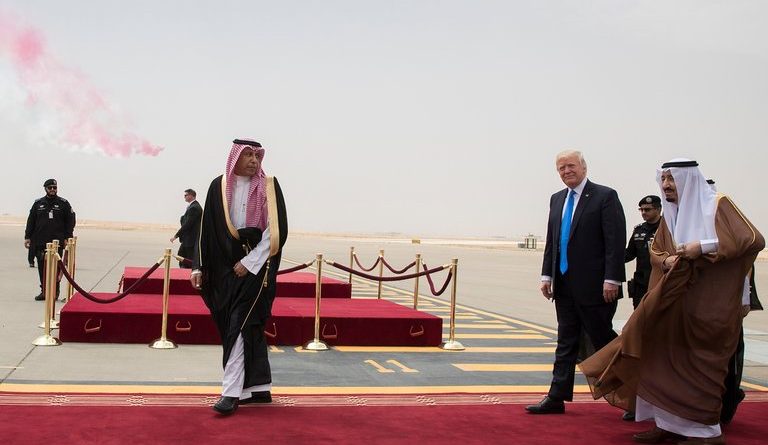Saudi Arabia’s Special Power Over Donald Trump
Consider this foreign policy challenge: A Mideast leader undertakes a stunning power play to cement domestic control, carrying out mass arrests without due process and installing loyalists in key ministries. He ratchets up criticism of a regional rival and accuses it of effectively declaring war. And another Mideast leader, while on a visit to the first one’s country, abruptly resigns and doesn’t return home.
If all this were happening in Iran, it’s a fair guess that President Trump, Congress and a host of other voices would react with outrage. In truth, the scenario sums up what’s been happening in Saudi Arabia in the last week under Crown Prince Mohammed bin Salman. And Mr. Trump could not have been more effusive. “I have great confidence in King Salman and the Crown Prince of Saudi Arabia, they know exactly what they are doing,” he t
There’s a big difference, of course, between Saudi Arabia and Iran; the former is an American ally, the latter an antagonist. But it has not been American practice to give allies a free pass when they’re destabilizing the region, and Saudi policies, both domestic and foreign, have become increasingly aggressive under Crown Prince Mohammed. In addition to his power play, he’s escalated Saudi involvement in Yemen; continued his boycott of Qatar, ostensibly another American ally; and made inflammatory statements about Iran. Saad Hariri, the Lebanese prime minister, resigned a week ago while in the Saudi capital, Riyadh, in circumstances that remain a mystery.
No problem, suggests Mr. Trump, who made clear early on that he would side with the kingdom and its Sunni allies against Shiite-led Iran. But there is a problem: Mr. Trump’s uncritical support of the prince’s behavior is stirring fears of a war with Iran and undermining American interests.
Secretary of State Rex Tillerson knows this, even if his boss doesn’t. On Friday Mr. Tillerson reaffirmed Lebanon’s independence, hailed Mr. Hariri and cautioned against using Lebanon for proxy conflicts. His words were a stern, if indirect, admonishment to Saudi Arabia. And to his boss in the Oval Office. Though why should a headstrong Saudi prince pay any attention to an American underling who has been repeatedly undermined by that same boss?
New York Times Editorial Board

